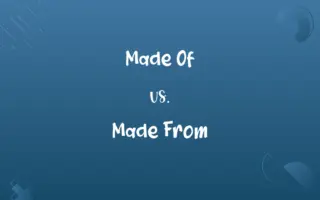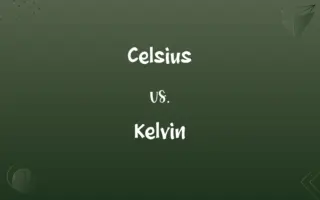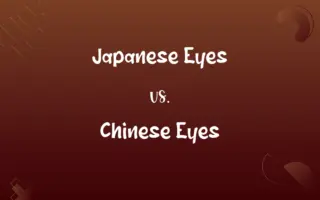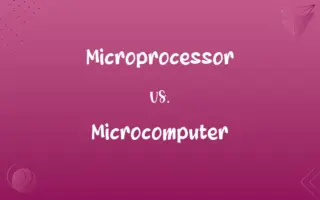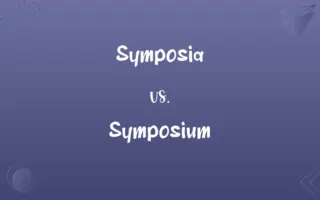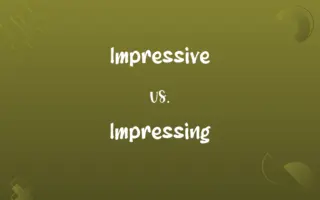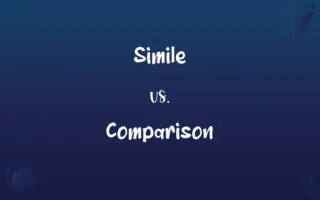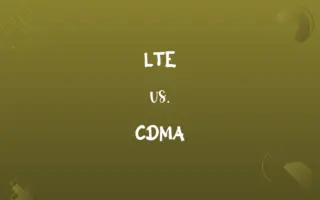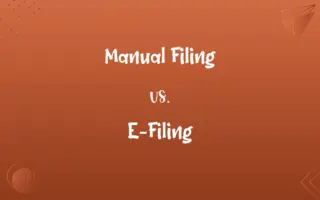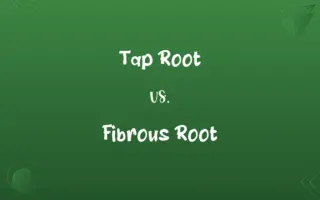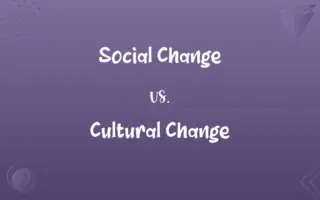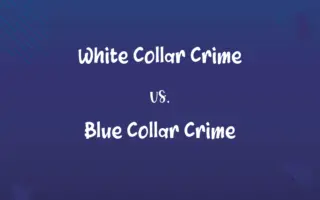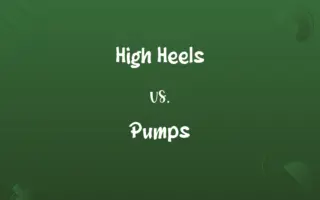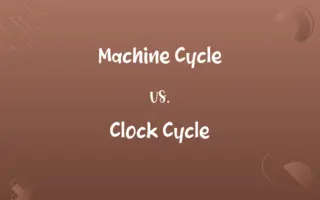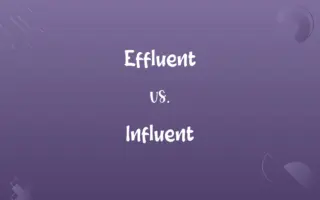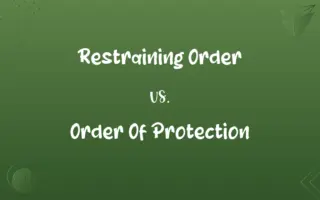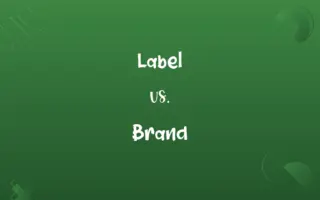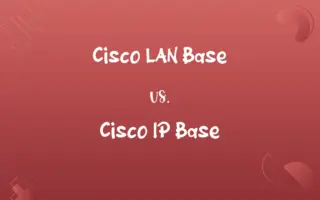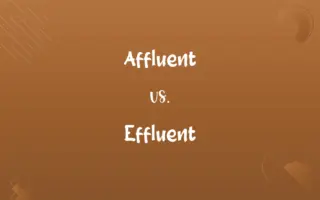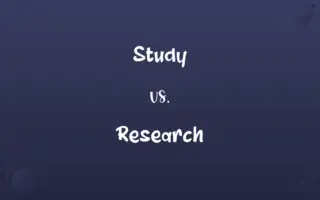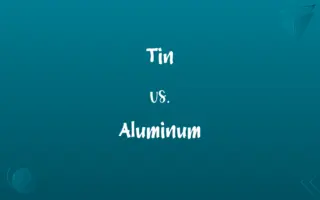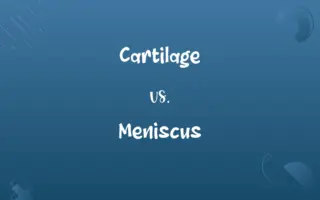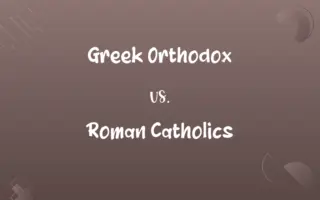Antigen vs. Pathogen: Know the Difference

By Shumaila Saeed || Published on January 14, 2024
An antigen is a substance that induces an immune response, often a protein on a pathogen's surface, while a pathogen is a microorganism that causes disease.

Key Differences
An antigen is a molecular structure, often a protein or polysaccharide, that is recognized by the immune system and can trigger an immune response. These antigens can be a part of pathogens, such as viruses or bacteria, but they can also be found in non-pathogenic substances. Pathogens, on the other hand, are organisms like bacteria, viruses, fungi, or parasites that can cause disease in their host.
Shumaila Saeed
Jan 14, 2024
Antigens are not inherently harmful; they are simply markers that the immune system uses to identify foreign entities. They can be found on the surface of cells, including those of pathogens, or in substances like pollen or food. Pathogens, in contrast, are capable of causing illness or infection due to their biological activity in the host body.
Shumaila Saeed
Jan 14, 2024
The role of an antigen is to elicit an immune response, which includes the production of antibodies specific to that antigen. This is crucial in the body's defense against infections. Pathogens, conversely, actively work to evade the immune system and establish infection, often causing harm to the host organism.
Shumaila Saeed
Jan 14, 2024
Vaccines often contain antigens, which are introduced into the body to safely stimulate an immune response without causing the disease. This contrasts with pathogens, which are the actual causative agents of diseases and can cause illness when they infect a host.
Shumaila Saeed
Jan 14, 2024
In summary, while antigens are components that can be part of a pathogen and are recognized by the immune system, pathogens are the organisms that cause disease. Understanding the distinction is critical in fields like immunology, vaccine development, and infectious disease control.
Shumaila Saeed
Jan 14, 2024
ADVERTISEMENT
Comparison Chart
Definition
Substance that induces an immune response.
Microorganism that causes disease.
Shumaila Saeed
Jan 14, 2024
Role
Triggers immune system, leading to response.
Causes disease and infection in hosts.
Shumaila Saeed
Jan 14, 2024
Nature
Not inherently harmful; can be part of pathogen.
Inherently harmful to host.
Shumaila Saeed
Jan 14, 2024
Occurrence
Found on pathogens and non-pathogens.
Always a disease-causing organism.
Shumaila Saeed
Jan 14, 2024
Use in Medicine
Used in vaccines to stimulate immunity.
Targeted by treatments to cure diseases.
Shumaila Saeed
Jan 14, 2024
ADVERTISEMENT
Antigen and Pathogen Definitions
Antigen
A substance that the immune system recognizes as foreign.
The flu virus has antigens that are recognized by antibodies.
Shumaila Saeed
Dec 17, 2023
Pathogen
An organism that causes disease.
The coronavirus is a pathogen that caused a global pandemic.
Shumaila Saeed
Dec 17, 2023
Antigen
Molecules on pathogens that trigger immune response.
Bacterial antigens stimulate the production of specific antibodies.
Shumaila Saeed
Dec 17, 2023
Pathogen
A biological agent that can infect and harm a host.
Malaria is caused by a pathogen transmitted by mosquitoes.
Shumaila Saeed
Dec 17, 2023
Antigen
A component that can be part of a virus, bacteria, or other pathogens.
The antigen on the virus's surface was targeted by the vaccine.
Shumaila Saeed
Dec 17, 2023
ADVERTISEMENT
Pathogen
Microorganisms like bacteria, viruses, or fungi that can cause illness.
E. coli is a pathogen responsible for food poisoning.
Shumaila Saeed
Dec 17, 2023
Antigen
Any substance that causes the body to produce antibodies against it.
The vaccine contains a harmless antigen to build immunity.
Shumaila Saeed
Dec 17, 2023
Pathogen
Any virus, bacterium, or other microbe that can cause disease.
Antibiotics are used to treat bacterial pathogens.
Shumaila Saeed
Dec 17, 2023
Antigen
In immunology, a protein or polysaccharide that induces immune response.
Blood transfusions must be matched for certain antigens to prevent rejection.
Shumaila Saeed
Dec 17, 2023
Pathogen
An infectious agent that causes disease in its host.
HIV is a pathogen that attacks the immune system.
Shumaila Saeed
Dec 17, 2023
Antigen
A molecule that is capable of binding to an antibody or to an antigen receptor on a T cell, especially one that induces an immune response. An antigen is usually a foreign substance, such as a toxin or a component of a virus, bacterium, or parasite.
Shumaila Saeed
Dec 13, 2023
Pathogen
An agent that causes disease, especially a virus, bacterium, or fungus.
Shumaila Saeed
Dec 13, 2023
Antigen
(immunology) A substance that induces an immune response, usually foreign.
Shumaila Saeed
Dec 13, 2023
Pathogen
Any organism or substance, especially a microorganism, capable of causing disease, such as bacteria, viruses, protozoa or fungi. Microorganisms are not considered to be pathogenic until they have reached a population size that is large enough to cause disease.
Shumaila Saeed
Dec 13, 2023
Antigen
Any substance (as a toxin or enzyme) that stimulates the production of antibodies
Shumaila Saeed
Dec 13, 2023
Pathogen
Any microorganism which causes disease; a pathogenic organism; an infectious microorganism; a bacterium, virus, or other agent which can cause disease by infection; - opposed to zymogene. The spelling pathogene is now archaic.
Shumaila Saeed
Dec 13, 2023
Pathogen
Any disease-producing agent (especially a virus or bacterium or other microorganism)
Shumaila Saeed
Dec 13, 2023
Repeatedly Asked Queries
Can all pathogens cause severe diseases?
Not all; some pathogens can cause mild or asymptomatic infections.
Shumaila Saeed
Jan 14, 2024
Are antigens only found on viruses and bacteria?
No, they can also be on pollen, food, or even in vaccines.
Shumaila Saeed
Jan 14, 2024
Are antigens used in vaccine development?
Yes, vaccines often contain antigens to stimulate an immune response.
Shumaila Saeed
Jan 14, 2024
Can a pathogen have multiple antigens?
Yes, pathogens often have several different antigens.
Shumaila Saeed
Jan 14, 2024
Are all pathogens visible under a microscope?
Most are, but some may require special imaging techniques.
Shumaila Saeed
Jan 14, 2024
Is an allergy a response to a pathogen?
No, allergies are typically responses to non-pathogenic antigens.
Shumaila Saeed
Jan 14, 2024
Do vaccines contain live pathogens?
Some vaccines contain weakened or inactive forms of the pathogen.
Shumaila Saeed
Jan 14, 2024
Can someone be naturally immune to a pathogen?
Some individuals may have natural immunity to certain pathogens.
Shumaila Saeed
Jan 14, 2024
Can pathogens survive outside a host?
Some can, depending on the type of pathogen and environment.
Shumaila Saeed
Jan 14, 2024
Is every antigen a pathogen?
No, antigens can be present on non-pathogenic substances too.
Shumaila Saeed
Jan 14, 2024
Do antibodies target antigens or pathogens?
Antibodies specifically target antigens.
Shumaila Saeed
Jan 14, 2024
Can a single antigen trigger different immune responses?
Yes, depending on the antigen and the individual's immune system.
Shumaila Saeed
Jan 14, 2024
Can cooking food kill pathogens?
Yes, proper cooking can eliminate many foodborne pathogens.
Shumaila Saeed
Jan 14, 2024
Are antibiotics effective against all pathogens?
Antibiotics are effective against bacterial pathogens, not viruses.
Shumaila Saeed
Jan 14, 2024
Can a person be asymptomatic and still carry a pathogen?
Yes, individuals can carry pathogens without showing symptoms.
Shumaila Saeed
Jan 14, 2024
Can pathogens be used beneficially in medicine?
Yes, in some cases, like in vaccine development or gene therapy.
Shumaila Saeed
Jan 14, 2024
Can the same pathogen have different strains with different antigens?
Yes, pathogens can have multiple strains with varying antigens.
Shumaila Saeed
Jan 14, 2024
Is a toxin produced by bacteria considered an antigen?
Toxins can act as antigens if they trigger an immune response.
Shumaila Saeed
Jan 14, 2024
Do antigens change over time?
Yes, antigens, especially on viruses, can mutate over time.
Shumaila Saeed
Jan 14, 2024
Are antigens always harmful?
No, they are not harmful themselves; they just trigger immune responses.
Shumaila Saeed
Jan 14, 2024
Share this page
Link for your blog / website
HTML
Link to share via messenger
About Author
Written by
Shumaila SaeedShumaila Saeed, an expert content creator with 6 years of experience, specializes in distilling complex topics into easily digestible comparisons, shining a light on the nuances that both inform and educate readers with clarity and accuracy.

